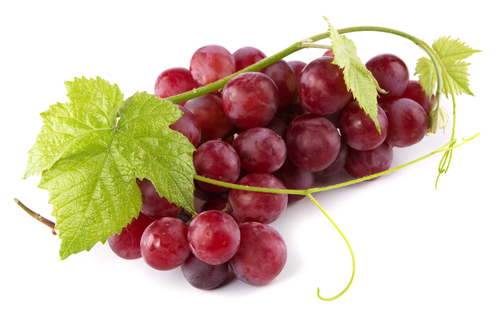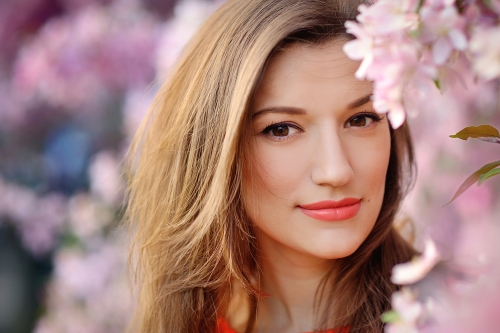How sunshine keeps your brain young
A key reason we feel better in the summer is that sunlight boosts mood, mind, immunity and bone health. Sun exposure increases vitamin DWhat it does: Helps maintain strong and healthy bones by retaining calcium. Deficiency Signs: Joint pain or stiffness, backache, tooth decay, muscle cramps, hair loss…., which is synthesized by sunlight acting on your skin. One of the hot areas of research right now is the effects of vitamin D on special hormone-like substances in the brain called neurotrophins, which regulate brain cell growth.

While it is normally true that the number of brain cells decline with age, the implication is that optimal levels of vitamin D – which means supplementing 15mcg a day if you live in the Northern hemisphere – may help keep your brain young.
Why eating red grapes could help you live longer
The proven way to extend a healthy lifespan is to eat fewer calories but it’s possible that an ingredient called resveratrol in red wine and grapes could achieve the same thing.

This is because when you eat less you ‘switch on’ Sirtuin 1, nicknamed the ‘survival gene’ which promotes DNA repair1, and resveratrol also switches on this gene. Not only this but it favourably affects over a hundred genes that help programme you for longevity.2 So apart from its specific effects on slowing down various aspects of cellular ageing, it also seems to protect against heart disease, brain damage and even cancer.3
Eat low GL to slow cellular ageing
If eating less calories really is the mecca of anti-ageing, eating a low-GL diet is the holy grail of weight control. The reason the two are connected is simple – over-eating encourages cell overgrowth and hence cancer, while under-eating slows down cellular ageing. Diets high in dairy products, themselves high in growth promoters, tend to lead to more height and more cancer.
The rural Chinese, for example, have no dairy, more fish and vegetable proteinProteins are large molecules consisting of chains of amino acids. Proteins are essential nutrients for the human body – they are a building block of…, less meat, and more vegetables and fruit, and considerably less degenerative diseases, especially cancer. They also tend to hold the world records for longevity.
Resveratrol may also play a part here as it may also help you lose weight by inhibiting the body’s ability to turn sugar into fatThere are many different types of fats; polyunsaturated, monounsaturated, hydrogenated, saturated and trans fat. The body requires good fats (polyunsaturated and monounsaturated) in order to… and by reducing insulinInsulin is a hormone made by the pancreas. It is responsible for making the body’s cells absorb glucose (sugar) from the blood…. levels which means less blood sugar lows and less hunger. 4,5
How to achieve youthful skin
Another nutrient that switches countless genes towards anti-ageing, and the most important for keeping your skin young, is vitamin A. It regulates 300 to 1000 genes, controlling cell growth and has anti-cancer properties.
As you might have noticed, skincare companies are cottoning onto the fact that increasing your vitamin A intake – both from the inside through diet, and from the outside – has the most profound anti-ageing properties, reversing pigmentation and wrinkles, and protecting from sun damage.

Vitamin A’s sun protective effect is doubly important because it’s clear we need sunlight to make vitamin D. By increasing your skin’s concentration of vitamin A, sunlight still stimulates vitamin D production without damaging the skin. Sunblocks, on the other hand, stop your skin’s ability to synthesize vitamin D. For this reason, I don’t use sunblocks but rather favour lower SPF sunscreens that contain vitamin A, such as Environ’s RAD (available from beauty salons).
Take B vitamins for longevity
Also vital for anti-ageing are the methylationMethylation is what occurs when the body takes one substance and turns it into another, so that it can be detoxified and excreted from the… nutrients – especially vitamins B2, B6, B12 and folic acidWhat it does: Critical during pregnancy for the development of a baby’s brain and nerves. Also essential for brain and nerve function. Needed for utilising….
Methylation is a process that repairs DNA in your body – so optimising it is vital to keep our bodies running efficiently. Effective methylation also helps keep a protein in your blood, called homocysteineHomocysteine is an amino acid found in the blood. Elevated levels of homocysteine have been associated with narrowing and hardening of the arteries, an increased…, low, ideally below 7, which is a very good predictor of longevity, and helps switch genetic expression towards anti-ageing.
Four steps to a younger you
So what does all this mean in terms of developing your own anti-ageing lifestyle?
- In terms of what you eat, you should control your weight by following a low-GL diet, high in antioxidants, and especially berries, cherries and red grapes (although the latter are quite high in sugar and hence GL). You want to clock up as many antioxidantAntioxidants are substances that protect cells within the body from damage caused by free radicals. They help to strengthen the body’s ability to fight infection… units as you can every day, for example by eating a couple of squares of dark chocolate, sprinkling cinnamon on your breakfast, cooking with turmeric and ginger, and eating lots of fresh vegetables as well.
- In terms of supplements, it means making sure you take on a daily basis – and ideally in two divided doses –
- Vitamin A (at least 1,500mcg)
- Vitamin D (at least 15mcg)
- B vitamins that lower homocysteine (eg B6 20mg, B12 at least 10mcg – more if you are over 60, and folic acid 400mcg)
- Vitamin CWhat it does: Strengthens immune system – fights infections. Makes collagen, keeping bones, skin and joints firm and strong. Antioxidant, detoxifying pollutants and protecting against… (2,000mg)
- Plus a combination of antioxidants including resveratrol (20mg), glutathione (100mg), beta-carotene (15mg), alpha lipoic acid (20mg), Co-Q10 (20-50mg), vitamin EWhat it does: Acts as an antioxidant, protecting cells from damage, including against cancer. Helps body use oxygen, preventing blood clots, thrombosis, atherosclerosis. Improves wound… and seleniumWhat it does: Antioxidant properties help to protect against free radicals and carcinogens, reduces inflammation, stimulates immune system to fight infections, promotes a healthy heart,…. In total, supplement 150-200mg of vitamin E and 75-100mcg of selenium
- Don’t forget to exercise, get outdoors for at least half an hour a day, and apply a vitamin A and vitamin-C rich skin cream such as Environ.
- Most of all, don’t worry, be happy! Stress ages you – while enjoying life, learning new things, talking to people and letting go of negative emotions helps keep you young.
I am confident that these four actions will add years to your life and life to your years.
REFERENCES
- KT Howitz et al, Small molecule activators of sirtuins extend Saccharomyces cerevisiae lifespan, Nature (2003), vol 425(6954), pp191-6.
- P Signorelli & R Ghidoni, Resveratrol as an anticancer nutrient: molecular basis, open questions and promises, The Journal of Nutritional Biochemistry (2005), vol 16(8), pp 449-466.
- B Kuzhuvelil et al, Resveratrol: a multitargeted agent for age-associated chronic diseases, Cell Cycle (2008), vol 7(8), pp 1020 – 1035.
- Wei-Xi Tian, Inhibition of fatty acid synthase by polyphenols, Current Medicinal Chemistry (2006), vol 13(8), pp 967-977.
- T Szkudelski The insulin-suppressive effect of resveratrol – An in vitro and in vivo phenomenon, Life Sciences (2008), vol 82(7-8), pp 430-35.

Comments
Join the Conversation on our Facebook Page